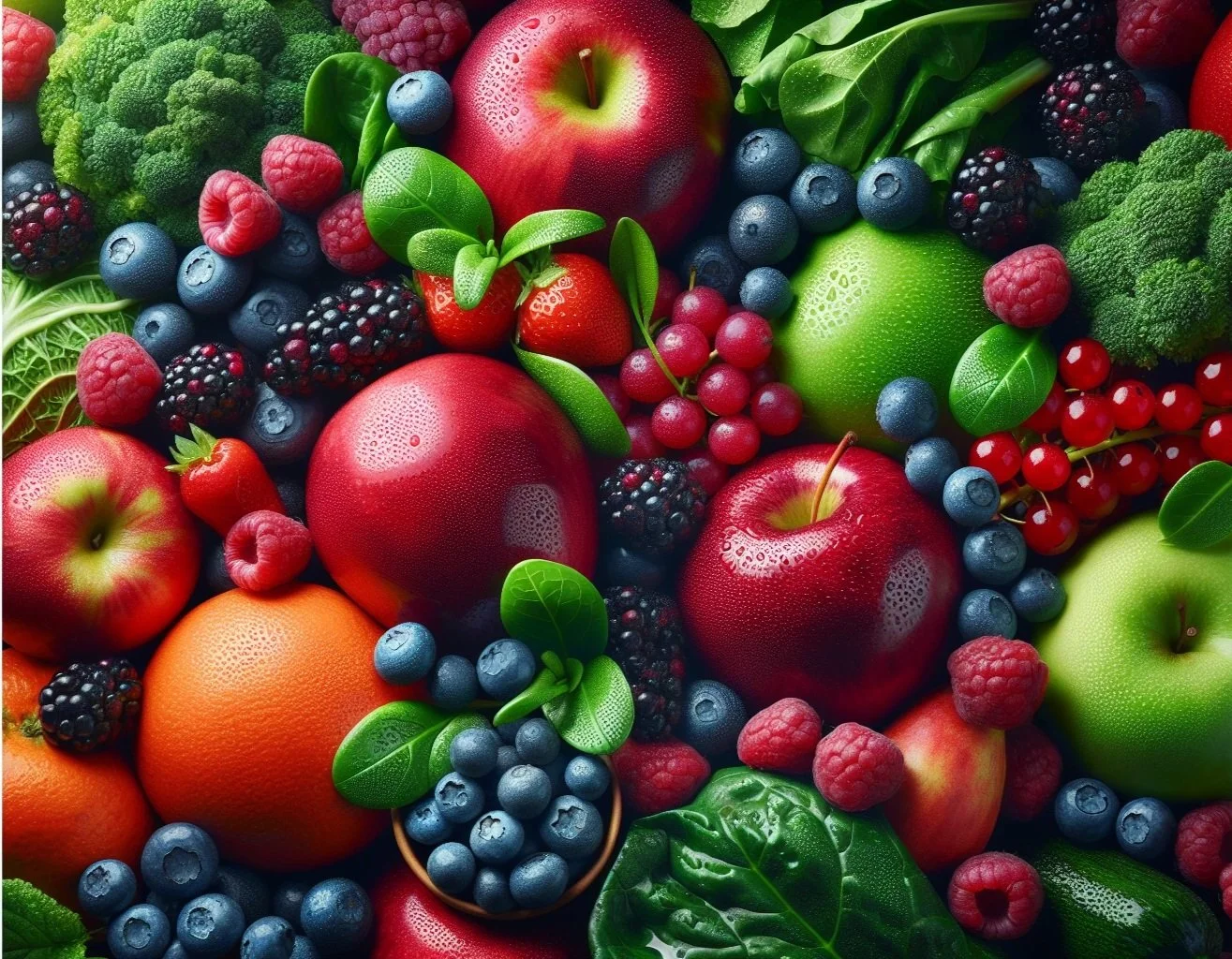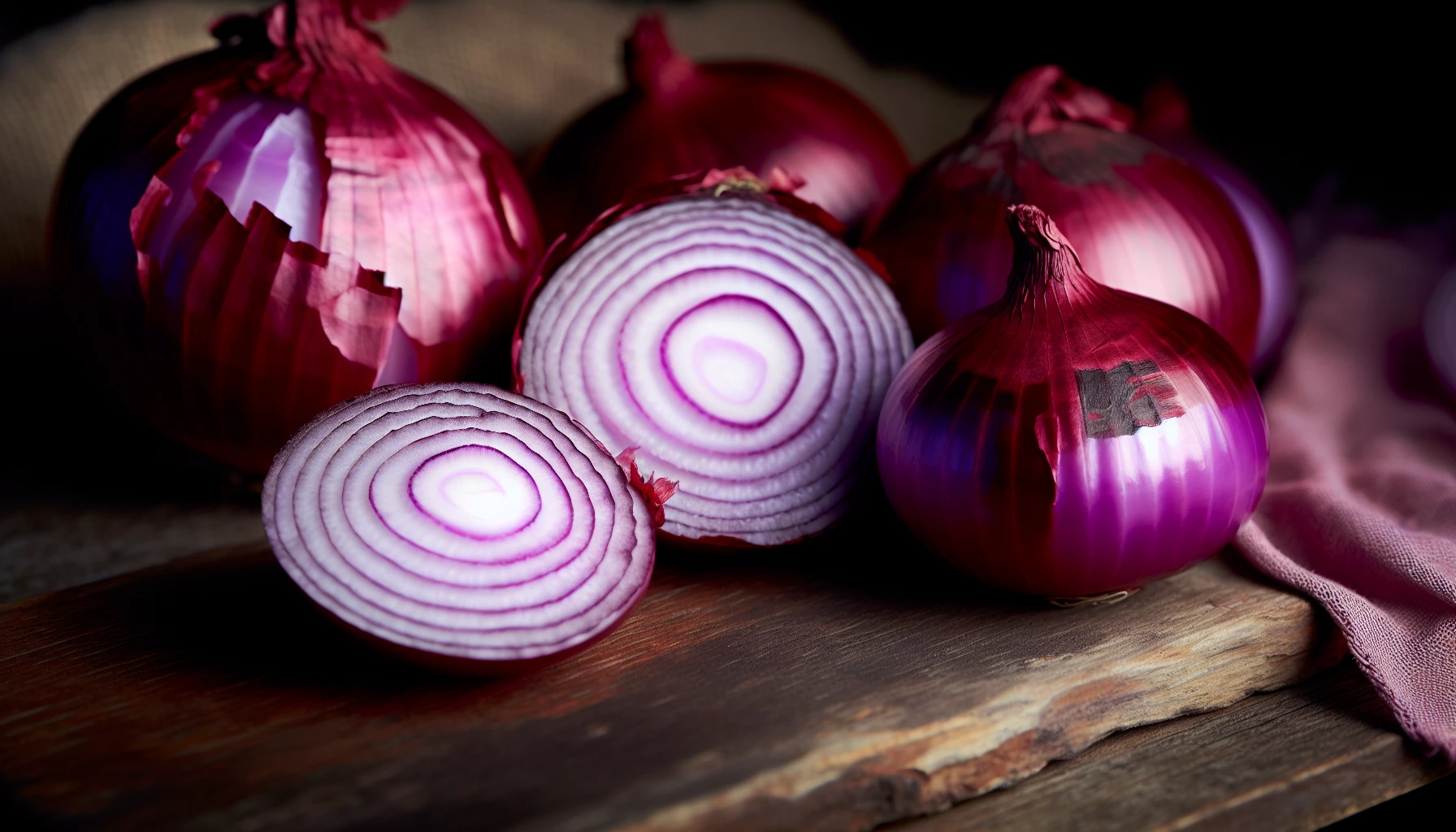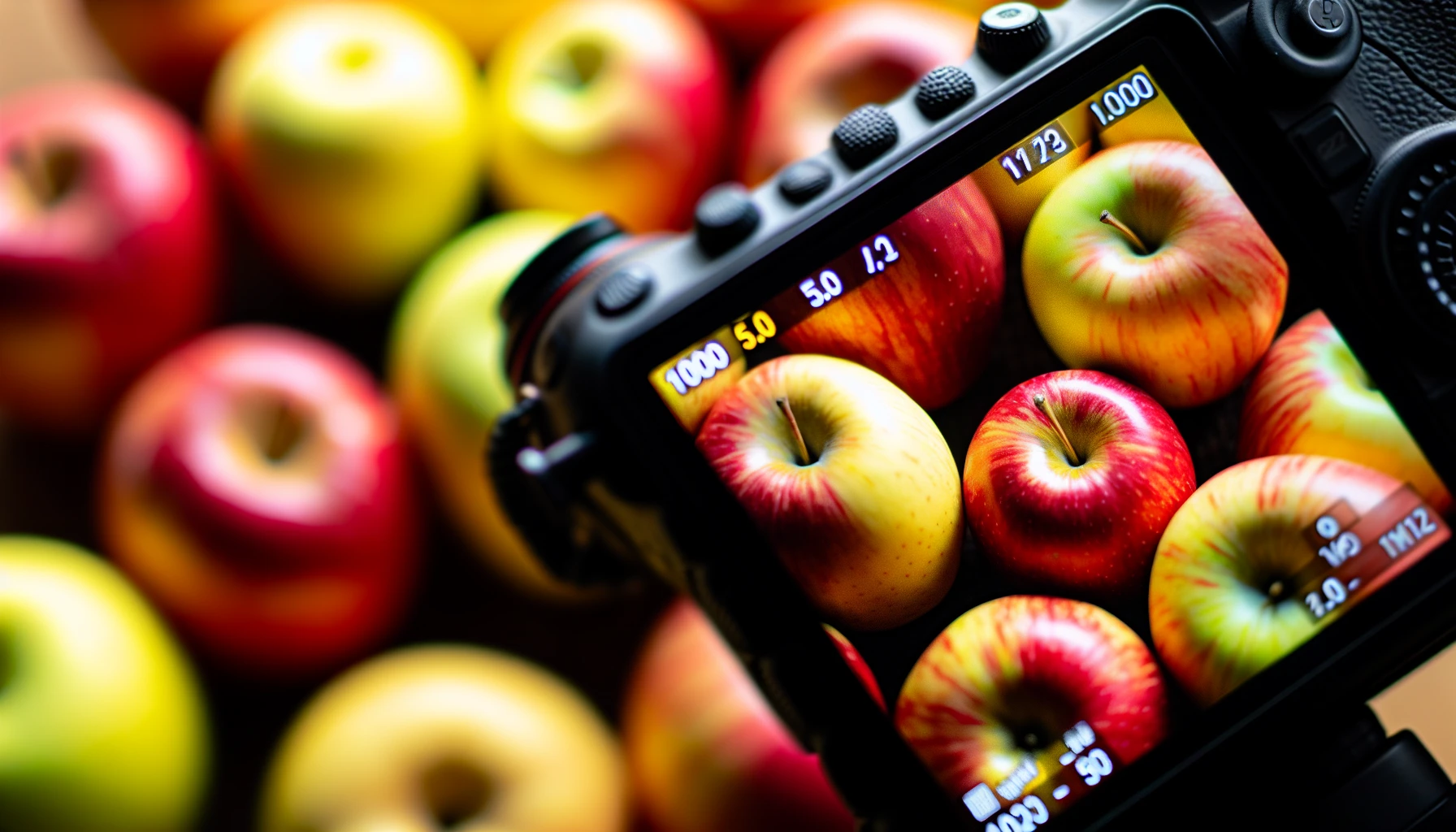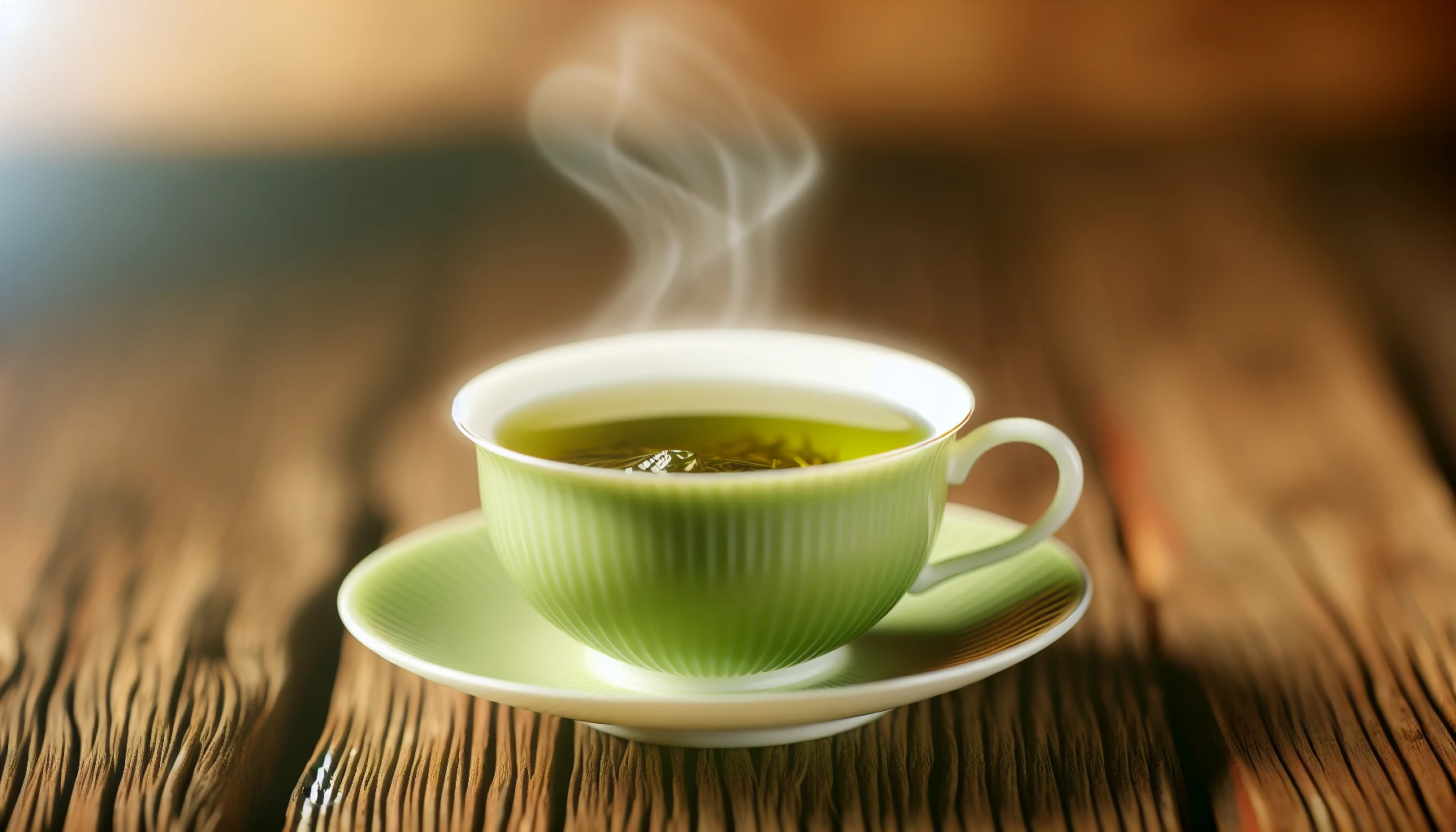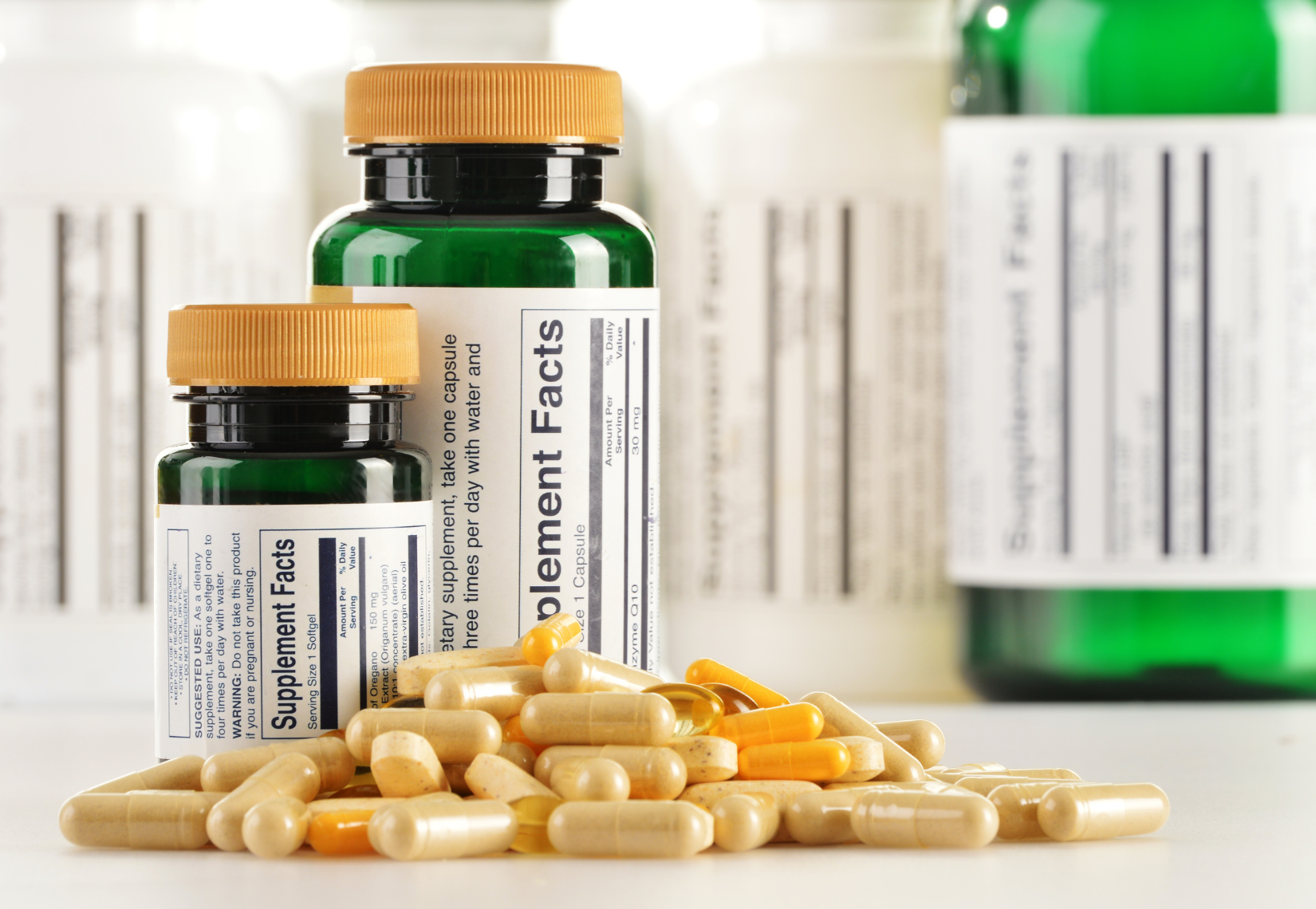Boost Your Health: 10 Quercetin Containing Foods to Incorporate Into Your Diet
If you’re seeking to naturally enhance your well-being and reduce the risk of long-term serious health problems and conditions, look no than the quercetin foods found in a variety of produce. Quercetin belongs a class of plant compounds called flavonoids. This effective plant compound contains numerous advantages including anti-inflammatory, antiviral and antimicrobial properties as well as being a potent antioxidant. In this blog post, we’ll show you 10 food sources of quercetin that can be integrated into your nutrition easily for improved overall vigor and prevention from chronic diseases.
From red onions right through to citrus fruits, these type of foods may contain modest levels of quercetin, but may also contain an assortment of necessary vitamins which aid with creating a complete balanced diet plan. To really get all the full benefits out of this outstanding anti-oxidant, let’s take off on our mission determining where it originates so its absorption is maximized!
Key Takeaways
Top 10 quercetin-rich foods include red onions, apples, leafy greens, berries, capers, green tea, broccoli and citrus fruits.
Quercetin supplementation may improve type 2 diabetes symptoms as well as cardiovascular disease. Consulting a healthcare provider is recommended before taking any supplement.
Understanding Oxidative Stress
Oxidative stress is a state that occurs when there's an imbalance in the body between the production of harmful free radicals and the body's ability to detoxify their harmful effects or repair the resulting damage. Free radicals are oxygen-containing molecules that have an uneven number of electrons, which allows them to easily react with other molecules in the body. These reactions can lead to substantial damage to cells and tissues, a process known as oxidative stress. This damage can play a pivotal role in the development of a variety of diseases and health conditions, including cancer, aging, heart disease, and neurodegenerative and degenerative brain disorders like Alzheimer's disease.
Quercetin: A Powerful Antioxidant
Behold the colorful array of nature's finest, each brimming with the life-enhancing antioxidant quercetin. A feast for the eyes and nourishment for the soul, these fruits and vegetables are the unsung heroes in our quest for a vibrant, healthier life.
Plant compounds like Quercetin is a strong antioxidant, belonging to plant compounds known as flavonoids that are found in healthy foods like various fruits and vegetables. It may provide numerous health advantages such as minimized threats of heart disease, cancer cells, and degenerative brain problems. Quercetin’s anti-oxidizing properties protect the healthy cells from free radicals which can lead to the cellular damage and harm due to aging & other conditions.
Various foods such as onions, apples, grapes, berries, citrus fruits, cherries, green tea, coffee, and capers are rich in quercetin and should be included in your diet for optimal benefits. A diet rich in these foods can help tap into the diverse therapeutic functions of quercetin, promoting anti-inflammatory, antiviral, and antimicrobial properties against many diseases. Let's explore the 10 most quercetin-rich foods that can invigorate and nourish your health in many ways.
Top 10 Quercetin-Rich Foods to Add to Your Diet
Where does Quercetin come from?
As we delve into the world of health and wellness, our quercetin foods list becomes an essential tool. But it’s not just about quercetin. Other compounds like fisetin and spermidine also play crucial roles in our health. These substances have been linked to a reduction in age-related diseases and an improvement in cognitive function. Moreover, they possess anti-inflammatory properties, which can help combat chronic inflammation, a common factor in many health conditions. By incorporating foods rich in these compounds into our diet, we can take a proactive step towards maintaining our health and wellness.
Red onions are not only a culinary delight adding a sweet note to your dishes, but they are also packed with quercetin, a flavonoid that can perk up your health. When you sprinkle these vibrant veggies raw over your salad or sandwich, you're not just enhancing the taste, you're also giving your meal a nutritious boost.
Incorporating foods rich in quercetin into your diet can have a positive impact on your health and help to reduce the risk of chronic diseases. Some of the best food sources used for obtaining this nutrient found naturally are categorized as follows:
Vegetables: Red onions, leafy greens like kale, spinach, red lettuce other vegetables with deep colorations, and broccoli are rich in this nutrient.
Fruits: Apples, berries such as blueberries or cranberries, and citrus fruits like oranges or grapefruits are excellent sources of quercetin.
Additionally, capers and green tea are also beneficial when trying to increase one’s intake of quercetin. By including these nutritious ingredients into our daily diets, we will gain various health benefits associated with it while reducing the risks related to certain ailments over time.
Red Onions
When it comes to plant-based foods, red onions are a renowned source of quercetin. Adding them into your diet can be a great way to boost the intake of this nutrient. To maximize the amount you get from these flavorful vegetables, consider using some options, like slicing and tossing, with salads or sandwiches. Throwing on top of grilled meats or veggies. Sautéing for stir fries or soups and stews, all without frying! If cooking is necessary, keep temperatures low so as not to lose out on any essential elements of quercetin which will still remain after light processing.
Apples
Fresh apples, a high quercetin fruit, are not just a treat to your taste buds but also a boon to your health. To harness the full spectrum of benefits, it's best to enjoy apples with their skin on, as that's where a significant portion of the quercetin is concentrated. Apples are incredibly versatile in the kitchen, making them easy to incorporate into your diet. You can slice them up for a fresh salad, chop them into your morning oatmeal, or even bake them into wholesome treats. By making apples a staple in your diet, you're not just indulging in their natural sweetness—you're also supporting your health with every bite.
Red and yellow apples contain an abundance of quercetin with around 10 mg in each average-sized apple, offering numerous health benefits for those wanting to increase their intake. To maximize the amount consumed from a single piece of fruit, it is essential not to remove the peel as that’s where most of this beneficial antioxidant resides. Apples can also be incorporated into various dishes such as salads, oatmeal or baked goods providing more ways to benefit from its contents without sacrificing taste.
Leafy Greens: Kale, Spinach and Red Lettuce
When it comes to foods high in quercetin, leafy greens like kale, spinach and red lettuce are great sources of this potent antioxidant. They provide a range of health benefits as one cup of uncooked kale contains 23 mg of quercetin. Incorporating these nutritious veggies into your meals is an easy way for you to increase your consumption levels and enjoy the many advantages they have on offer.
Adding leafy greens to what you eat can be effortless with options such as salads, smoothies or stir-fries. All base ingredients for delicious yet nutrient dense dishes! Knowing about agricultural and food chemistry together with food science assists us when selecting better nutritional choices – making them essential components within our daily fare allows us to increase our intake which also combines minerals, vitamins and fiber, found through the vegetables themselves.
Berries: Blueberries and Cranberries
Consuming quercetin-rich berries, such as blueberries and cranberries, can help improve health by providing the body with numerous benefits due to their high antioxidant content. Blueberry consumption is especially nutritious since one cup offers up to 14 mg of this powerful anti-inflammatory compound. This delicious superfood can be conveniently added into various meals or snacks like smoothies, oatmeal, and yogurt or enjoyed on its own for a healthy snack option filled with antioxidants and other healthful properties. Including these beneficial foods in your daily diet will no doubt have positive health effects, while supporting overall well being at the same time!
Capers
The aromatic flower buds of the caper plant, otherwise known as capers, are a phenomenal source of quercetin and can be used to improve the flavor and health benefits in different recipes. Containing higher levels than other natural sources, these tangy delights offer antioxidant properties due to their content of naturally occurring quercetin.
Meals with this ingredient such as salmon with capers mixed together will help you up your intake without effort while adding more uniqueness that comes only from using them. Another simple option is salads accompanied by lemon-caper butter sauce – giving an extra boost to any dish! Their little addition goes beyond taste: it’s rich in antioxidants providing great advantages for our body when we use it constantly.
However, it's important to note that capers are often pickled or salted, which can significantly increase your sodium intake. So, if you're watching your salt intake, be sure to rinse them thoroughly before use or opt for low-sodium varieties.
Green Tea
Green tea is a favorite among some cultures for thousands of years and is gaining popularity here in North America. Green tea is nice because it's not just a warm, comforting beverage, but also a powerhouse of health benefits. Packed with antioxidants, particularly quercetin, it's like a stealthy ninja fighting against free radicals in your body, helping to protect cells from damage. Sipping on green tea can be a serene experience, often associated with mindfulness and relaxation practices. Whether you're enjoying a cozy cup on a chilly morning or sipping it iced under the summer sun, green tea offers a versatile option for hydration and health. Plus, it's a great conversation starter – who wouldn't want to chat over a cup of ancient wellness?
With its quercetin content and other nutrients, green tea is a popular beverage that can help promote overall health. An average of 15 mg of quercetin are found in 12 ounces, making it an easy way to consume the beneficial compound. Other compounds included in this drink are phenolic acids, polyphenolic components such as catechins, amino acids, proteins and fats which all add extra value to your cup of tea!
Including daily intake of green tea comes with many advantages. These include reducing stress levels along with protecting against cognitive decline while promoting good bone health as well as boosting longevity. All this from just one enjoyable glass each day!
Increasing your intake through consuming more than 12 oz per serving will result in benefits related directly to higher amounts. For example increased protection against degenerative diseases, improved performance during workouts due specifically to increasing the amount available. When supplementing natural consumption by drinking unsweetened organic beverages containing precisely measured concentrations, you know exactly how much you take upon given servings (cups).
Broccoli
Broccoli is a vegetable that is abundant and high in quercetin, and makes for an excellent nutrient-rich snack. Eating it raw will allow you to get the highest possible intake of this beneficial compound as a small bowl contains 14 mg of quercetin. Other options such as steaming or stir-frying broccoli can still give you plenty of health benefits. Chopped up raw pieces also make great additions to salads, while roasted or steamed versions are delicious accompaniments for main dishes. It’s important to note that boiling your broccoli should be avoided if looking to increase its content with regards to quercetin levels. By preserving maximum nutrients through light cooking processes like those mentioned above, one can gain optimal benefits from eating this superfood!
Citrus Fruits: Oranges and Grapefruits
Consuming citrus fruits like oranges and grapefruits can boost quercetin intake, which can prove beneficial for overall health as they contain high levels of vitamin C. The said vitamins guard against oxidative damage from occurring due to their antioxidant properties.
It is possible to incorporate these foods into various dishes such as smoothies, salads or simply enjoy them fresh, in order reap the health benefits that come with it, while at the same time diminishing risks posed by chronic diseases.
Including oranges and grapefruits in your diet provides you with an easy way increase your dietary consumption of quercetin making sure all advantages are capitalized on while enjoying great taste along the way!
The Impact of Heat on Foods High in Quercetin
The process of heating and cooking our food, while essential for taste, digestibility, and safety, can unfortunately have a downside when it comes to the preservation of beneficial phytochemicals. Phytochemicals, such as quercetin, are naturally occurring compounds found in fruits and vegetables that contribute to their health-promoting properties. However, these compounds are often sensitive to heat and can degrade or transform into less beneficial forms during the cooking process. Understanding the impact of heat and processing on phytochemicals can guide us to make better choices in food preparation, ensuring we receive the most nutritional value from our meals.
Polyphenols are heat-sensitive, meaning that their structure can be altered when exposed to high temperatures. Cooking processes like boiling, frying, or roasting can degrade polyphenols, reducing their availability and potential health benefits. For example, boiling vegetables can result in a significant loss of quercetin, as this nutrient can leach into the cooking water and be destroyed by the heat.
Therefore, to maximize the polyphenol content of your food, consider using cooking methods that use less heat or shorter cooking times. Raw or lightly steamed vegetables, for instance, will retain more of their quercetin content than those that are boiled or roasted. Similarly, fruits consumed fresh or lightly grilled will maintain higher levels of certain forms of polyphenols compared to those that are baked or stewed.
In summary, while cooking can make some nutrients more digestible, it can also lead to the loss of others. To ensure a diverse intake of polyphenols, incorporate a mix of raw and gently cooked fruits and vegetables into your diet.
Quercetin Supplementation: When to Consider It
It may be necessary to take quercetin supplements if individuals do not get enough of the nutrient from their diet or have health concerns. Quercetin is available in both capsule and powder form, which can help with issues such as inflammation, cancer, allergic reactions, cardiovascular disorders and arthritis. Before starting any new supplement program, including taking quercetin supplements, it is important that you seek advice from a healthcare professional for safety reasons. This applies particularly when pregnant or breastfeeding women are considering supplementation with quercetin.
Benefits of Quercetin Supplementation
Discover the hidden powers of Quercetin: Your guide to a healthier life starts here! Explore the incredible benefits of this natural wonder – from inflammation-fighting power to improved athletic performance. Quercetin, a potent flavonoid found abundantly in nature, is your secret weapon for a vibrant, well-balanced life. Say goodbye to inflammation, embrace improved athletic performance, and step into a healthier, more vibrant you. Your path to optimal health begins now!
Quercetin supplementation is known to offer many health benefits, for those suffering from Type 2 diabetes, cardiovascular disease, gut issues, inflammation and related disorders. This section will delve into the particulars of how a quercetin intake can aid in each condition.
From improved glycemic control for diabetics to decreased levels of bad cholesterol linked with heart conditions. This plant-derived compound shows promise as a dietary supplement aimed at promoting overall wellness by taking advantage of its anti-inflammatory characteristics. Quercetin may also help improve general digestive health while providing additional protection against other ailments due to its high antioxidant content which has been well documented in human studies over time.
Type 2 Diabetes
Type 2 diabetes is a metabolic syndrome. Quercetin has strong anti-diabetic properties, including the ability to lessen blood sugar levels, enhance insulin sensitivity and relieve symptoms of diabetes such as prickling sensations. This is attributed to quercetin’s inhibition of enzymes that interfere with glucose metabolism along with its hypoglycemic, hypolipidemic and antioxidant activity. Studies have indicated that supplementing with quercetin may lead to improved control of both blood pressure and glucose levels for individuals with Type 2 diabetes. This is supported by a systematic review and meta-analysis titled "Effects of quercetin supplementation on glycemic control among patients with metabolic syndrome and related disorders" conducted by Ostadmohammadi V et al. It is recommended that patients consult their healthcare provider first about any potential interactions between this supplement and medications they are taking before starting supplementation.
Cardiovascular Disease
There are many types of cardiovascular diseases. Taking quercetin supplements can have many benefits when it comes to cardiovascular health. Studies suggest that by providing antioxidant properties, it may impede the development of atherosclerosis and reduce the risk of endothelial dysfunction in blood vessels while also being effective against hypertension, inflammation, diabetes and other vascular diseases. As a result, adding these specific supplements into one’s routine could improve conditions associated with heart disease as well as lower their overall blood pressure levels. Consulting a doctor is important before taking any new supplement regimen, especially those related to medications for such illness.
Gut Health
The evidence suggests that quercetin supplements can help improve digestive system health. Quercetin appears to safeguard the intestinal walls and regulate the conditions within the gut, possibly reducing inflammation and even helping with concerns such as leaky gut. It has also been seen to affect bacterial levels in a positive manner, which is vital for overall wellness. The gut plays an important role in the immune system.
Thus adding more quercetin itself into your diet could potentially lead to better intestine security plus an improved internal microbiome balance too. Although anyone considering doing so should speak with their healthcare provider first - especially if they’re already taking medicine or need extra care when dealing with gastrointestinal problems.
Inflammation
The immune system is designed to be a homeostatic regulator. Quercetin supplementation may be beneficial for individuals looking to reduce inflammation. It can do this through various processes such as decreasing high-valent iron, inhibiting lipid oxidation and quenching reactive oxygen species (ROS). It has been suggested that it could suppress the secretion of inflammatory mediators in macrophages too.
Before adding any new supplements, including those containing quercetin, to their routine, consulting with a healthcare provider is crucial for safety reasons, particularly if already taking medications or suffering from health issues related to inflammation. It’s also important to understand potential side effects and interactions associated with these types of products so they don’t interfere negatively on overall health outcomes.
Quercetin Dosage for Health Benefits
The appropriate dosing of quercetin can vary significantly based on individual health status, age, and specific health goals. Generally, for overall health enhancement, studies have utilized doses ranging from 500 to 1,000 milligrams per day, often divided into two separate administrations. For targeted concerns like cardiovascular health, lower doses of 100 to 200 milligrams have been employed, while for managing type 2 diabetes symptoms, the dosing can be on the higher end of the spectrum, up to 1,000 milligrams daily. It is crucial to consult with a healthcare provider before beginning any supplementation, as they can provide personalized dosing recommendations and ensure safety, particularly when considering any potential interactions with existing medications or health conditions.
The correct daily dose of quercetin can vary based on factors such as age, health, and several other conditions. However, for general health benefits for an average person, many studies have used between 500 to 1,000 milligrams of quercetin per day. This dosage is often split into two doses and taken for up to 12 weeks.
For specific conditions, the dosages can vary:
For heart disease, doses of 100 to 200 milligrams of quercetin have been used.
For type 2 diabetes, doses of 500 to 1,000 milligrams per day have been used.
For inflammation, doses of 500 milligrams twice a day have been used.
As always, it's important to remember that natural products are not always necessarily safe and dosages can be crucial. Therefore, you should follow relevant directions on product labels and consult your healthcare provider before using quercetin supplements.
Quercetin Dosage for Athletic Performance and Recovery
Quercetin has sparked interest in the sports world for its potential to enhance athletic performance and aid in recovery. Athletes might consider quercetin supplementation as a natural way to possibly boost endurance and reduce exercise-induced inflammation. Research suggests that taking 1000 mg of quercetin daily could help diminish post-exercise inflammation and expedite recovery times, while doses of 500 mg have been linked to improved endurance and performance. Nonetheless, it's important to note that results can vary and more research is needed to establish optimal dosing guidelines. Athletes should consult with healthcare professionals before adding quercetin to their regimen to ensure it aligns with their individual health needs and athletic goals.
How much Quercetin should I take? Quercetin has been studied for its potential impact on athletic performance and recovery. A few studies suggests that it may enhance athletic performance and improve recovery time after exercise.
In one research study, athletes who took 1000 mg of quercetin daily for 7 days before a strenuous 3-day cycling routine experienced less post-exercise inflammation and had faster recovery times. Another study found that supplementation with 500 mg of quercetin for 7 days could improve endurance and overall athletic performance.
Importantly, continued research and randomized controlled trials is needed to confirm these findings and to determine the optimal dosage of quercetin for athletic performance and recovery. As always, it's important to consult with a healthcare provider before starting any new supplement regimen, especially if you are an athlete with specific nutritional needs and concerns.
How to Increase Quercetin Absorption
To enhance the absorption and efficacy of quercetin, it's beneficial to pair it with sources of healthy fats, such as avocados, nuts, or seeds, which can increase its bioavailability. Additionally, opting for a bioavailable form of quercetin, such as quercetin dihydrate or phytosome, can further promote better uptake by the body. Vitamin C is also known to work synergistically with quercetin, potentially amplifying its antioxidant effects, so including vitamin C-rich foods like citrus fruits or bell peppers in your meal may be advantageous.
Quercetin has impressive antioxidant potential, but its absorption by the body is often minimal. To get optimal health benefits from this powerful antioxidant, you should take quercetin with a source of healthy fat such as nuts, seeds or avocado for enhanced bioavailability. One can look into taking a supplement form like quercetin dihydrate or phytosome which are readily available and designed to promote better uptake.
Before starting any course involving quercetin supplements it is important to seek advice from your healthcare provider as they could have interactions with antibiotics and blood pressure medications among others.
Potential Side Effects and Interactions
Consumption of lower concentrations of quercetin supplements is usually considered safe and may have beneficial effects, yet large dosages may produce mild adverse effects such as kidney damage, a heightened possibility for bleeding and bruising when combined with warfarin therapy, headaches or tingling in arms/legs due to intravenous administration and nausea or vomiting. Quercetin might also interact with certain drugs like antibiotics (e.g., cyclosporine), topotecan, diclofenac, etc.). For pregnant women as well as those that are nursing an infant, it is wise advice to consult their healthcare professional before taking any dosage form of quercetin supplementation because limited data exist on its safety during pregnancy and lactation periods. It goes without saying that extra caution should always be used before initiating the intake of this kind of supplement regimen so seeking medical consultation would never go astray!
A diet rich in polyphenols or polyphenols supplementation causes these compounds to bind to Fe in the intestine so that it cannot be absorbed, leading to the development of anaemia. They can also interact with the regulation of iron homeostasis.
The negative impact of polyphenols on the functioning of the digestive system could result not only from the inhibition of digestive enzymes, but also from their influencing the intestinal microbiota.
Summary
To reap the health benefits of this powerful antioxidant, quercetin, it is important to include foods such as red onions, apples, leafy greens, berries and capers in your diet. Green tea and citrus fruits are also great sources for consuming more of this remarkable compound. Supplementing plant foods with bioavailable forms can aid absorption rate while pairing them up with healthy fats may help enhance its potency even further.
Quercetin supplementation has been found to be especially useful when dealing with type 2 diabetes or heart disease issues. Any kind of medical condition related to inflammation should only start being addressed after consulting a healthcare professional first due to avoiding potential complications that could arise from unexpected interactions between drugs or other substances prescribed by doctors already on hand before starting one’s own regimen.
Frequently Asked Questions
What is Quercetin?
Quercetin is a powerful flavonoid found in various foods. It belongs to the class of dietary flavonoids and offers numerous health benefits.
What Are the Different Forms of Quercetin?
Quercetin exists in two primary forms: quercetin dihydrate and quercetin phytosome. Quercetin dihydrate, commonly used in supplements, is more stable and soluble due to its water content. Quercetin phytosome, on the other hand, has enhanced bioavailability.
What is the main source of quercetin?
Fruits and vegetables are the main source of quercetin, which can be found in citrus fruits like oranges or grapefruits, apples, onions, organic tomatoes, parsley or sage, as well as red wine and olive oil. Dark berries such as cherries and grapes also contain this powerful antioxidant.
Which Foods Are High in Quercetin?
The top ten quercetin-rich foods include capers (the most concentrated source), red onions, kale, apples, grapes, berries, cherries, citrus fruits, broccoli, and green tea. Incorporating these foods into your diet can provide a natural boost of this beneficial flavonoid.
Which nuts are high in quercetin?
Cashew and walnuts boast the most quercetin, a flavonol that is also found in high amounts within almonds and pistachios.
What is the best form of quercetin?
The optimal form of quercetin is the aglycone type, which has been demonstrated to be more effectively absorbed by our bodies than other forms. To achieve maximum results, choose a supplement composed from top-notch organic components and devoid of fillers and extraneous substances.
How can I increase quercetin absorption in my body?
For higher absorption of quercetin, opt for a bioavailable form like quercetin dihydrate, phytosome or glucoside. Taking it with healthy fats can also be helpful in increasing its efficiency.
What are the potential benefits of quercetin supplementation?
Quercetin supports heart health, brain function, and may even have anti-cancer effects. Its antioxidant properties contribute to overall well-being. Quercetin supplementation is said to provide potential advantages including better blood pressure and sugar control, cardiovascular health, digestive system wellness and decreased inflammation.
Disclaimer
The information presented in this article is intended for educational purposes only and should not be interpreted as a replacement for professional medical advice or treatment. It is not meant to serve as medical or diagnostic advice, or to be used for treating a health problem or disease. If you are dealing with a health condition or disease, it is best to work with a medically trained healthcare professional who can provide personalized advice based on your unique health situation.
While we strive to deliver accurate, up-to-date information, we strongly recommend always consulting with a healthcare provider before making any changes to your diet or supplement regimen. Your health is unique to you, and what works for others may not work for you. It's important to remember that supplements and dietary changes should complement a balanced diet and healthy lifestyle, not replace them.
Furthermore, while some supplements may offer potential health benefits, they may also have side effects and could interact with medications you're currently taking. Therefore, it's crucial to discuss these potential risks with your healthcare provider.
Ultimately, your health and well-being are of the utmost importance. Always prioritize professional medical advice and make informed decisions about your health. Stay safe, stay informed, and stay healthy!
References
Ansari P, Choudhury ST, Seidel V, Rahman AB, Aziz MA, Richi AE, Rahman A, Jafrin UH, Hannan JMA, Abdel-Wahab YHA. Therapeutic Potential of Quercetin in the Management of Type-2 Diabetes Mellitus. Life (Basel). 2022 Jul 28;12(8):1146. doi: 10.3390/life12081146. PMID: 36013325; PMCID: PMC9409999.
Askari G, Ghiasvand R, Feizi A, Ghanadian SM, Karimian J. The effect of quercetin supplementation on selected markers of inflammation and oxidative stress. J Res Med Sci. 2012 Jul;17(7):637-41. PMID: 23798923; PMCID: PMC3685779.
DeBenedictis JN, de Kok TM, van Breda SG. Impact of Processing Method and Storage Time on Phytochemical Concentrations in an Antioxidant-Rich Food Mixture. Antioxidants (Basel). 2023 Jun 10;12(6):1252. doi: 10.3390/antiox12061252. PMID: 37371982; PMCID: PMC10295423.
Duda-Chodak A, Tarko T. Possible Side Effects of Polyphenols and Their Interactions with Medicines. Molecules. 2023 Mar 10;28(6):2536. doi: 10.3390/molecules28062536. PMID: 36985507; PMCID: PMC10058246.
Edwards RL, Lyon T, Litwin SE, Rabovsky A, Symons JD, Jalili T. Quercetin reduces blood pressure in hypertensive subjects. J Nutr. 2007 Nov;137(11):2405-11. doi: 10.1093/jn/137.11.2405. PMID: 17951477.
Huang H, Liao D, Dong Y, Pu R. Effect of quercetin supplementation on plasma lipid profiles, blood pressure, and glucose levels: a systematic review and meta-analysis. Nutr Rev. 2020 Aug 1;78(8):615-626. doi: 10.1093/nutrit/nuz071. PMID: 31940027.
Miglio C, Chiavaro E, Visconti A, Fogliano V, Pellegrini N. Effects of different cooking methods on nutritional and physicochemical characteristics of selected vegetables. J Agric Food Chem. 2008 Jan 9;56(1):139-47. doi: 10.1021/jf072304b. Epub 2007 Dec 11. PMID: 18069785.
Mirza MA, Mahmood S, Hilles AR, Ali A, Khan MZ, Zaidi SAA, Iqbal Z, Ge Y. Quercetin as a Therapeutic Product: Evaluation of Its Pharmacological Action and Clinical Applications-A Review. Pharmaceuticals (Basel). 2023 Nov 20;16(11):1631. doi: 10.3390/ph16111631. PMID: 38004496; PMCID: PMC10674654.
Nieman DC, Henson DA, Gross SJ, Jenkins DP, Davis JM, Murphy EA, Carmichael MD, Dumke CL, Utter AC, McAnulty SR, McAnulty LS, Mayer EP. Quercetin reduces illness but not immune perturbations after intensive exercise. Med Sci Sports Exerc. 2007 Sep;39(9):1561-9. doi: 10.1249/mss.0b013e318076b566. PMID: 17805089.
Nieman DC, Williams AS, Shanely RA, Jin F, McAnulty SR, Triplett NT, Austin MD, Henson DA. Quercetin's influence on exercise performance and muscle mitochondrial biogenesis. Med Sci Sports Exerc. 2010 Feb;42(2):338-45. doi: 10.1249/MSS.0b013e3181b18fa3. PMID: 19927026.
Ostadmohammadi V, Milajerdi A, Ayati E, Kolahdooz F, Asemi Z. Effects of quercetin supplementation on glycemic control among patients with metabolic syndrome and related disorders: A systematic review and meta-analysis of randomized controlled trials. Phytother Res. 2019 May;33(5):1330-1340. doi: 10.1002/ptr.6334. Epub 2019 Mar 8. PMID: 30848564.
Pellegrini N, Chiavaro E, Gardana C, Mazzeo T, Contino D, Gallo M, Riso P, Fogliano V, Porrini M. Effect of different cooking methods on color, phytochemical concentration, and antioxidant capacity of raw and frozen brassica vegetables. J Agric Food Chem. 2010 Apr 14;58(7):4310-21. doi: 10.1021/jf904306r. PMID: 20218674.
Rojano-Ortega D, Peña-Amaro J, Berral-Aguilar AJ, Berral-de la Rosa FJ. Quercetin supplementation promotes recovery after exercise-induced muscle damage: a systematic review and meta-analysis of randomized controlled trials. Biol Sport. 2023 Jul;40(3):813-825. doi: 10.5114/biolsport.2023.121320. Epub 2022 Nov 18. PMID: 37398956; PMCID: PMC10286622.
Rungapamestry V, Duncan AJ, Fuller Z, Ratcliffe B. Effect of cooking brassica vegetables on the subsequent hydrolysis and metabolic fate of glucosinolates. Proc Nutr Soc. 2007 Feb;66(1):69-81. doi: 10.1017/S0029665107005319. PMID: 17343774.
Sahebkar A. Effects of quercetin supplementation on lipid profile: A systematic review and meta-analysis of randomized controlled trials. Crit Rev Food Sci Nutr. 2017 Mar 4;57(4):666-676. doi: 10.1080/10408398.2014.948609. PMID: 25897620.
Sgrò P, Ceci R, Lista M, Patrizio F, Sabatini S, Felici F, Sacchetti M, Bazzucchi I, Duranti G, Di Luigi L. Quercetin Modulates IGF-I and IGF-II Levels After Eccentric Exercise-Induced Muscle-Damage: A Placebo-Controlled Study. Front Endocrinol (Lausanne). 2021 Nov 3;12:745959. doi: 10.3389/fendo.2021.745959. PMID: 34803913; PMCID: PMC8595302.
Tamtaji OR, Milajerdi A, Dadgostar E, Kolahdooz F, Chamani M, Amirani E, Mirzaei H, Asemi Z. The Effects of Quercetin Supplementation on Blood Pressures and Endothelial Function Among Patients with Metabolic Syndrome and Related Disorders: A Systematic Review and Meta-analysis of Randomized Controlled Trials. Curr Pharm Des. 2019;25(12):1372-1384. doi: 10.2174/1381612825666190513095352. PMID: 31092175.
Tsao JP, Bernard JR, Hsu HC, Hsu CL, Liao SF, Cheng IS. Short-Term Oral Quercetin Supplementation Improves Post-exercise Insulin Sensitivity, Antioxidant Capacity and Enhances Subsequent Cycling Time to Exhaustion in Healthy Adults: A Pilot Study. Front Nutr. 2022 Apr 28;9:875319. doi: 10.3389/fnut.2022.875319. PMID: 35571883; PMCID: PMC9096901.
Wu X, Zhao Y, Haytowitz DB, Chen P, Pehrsson PR. Effects of domestic cooking on flavonoids in broccoli and calculation of retention factors. Heliyon. 2019 Mar 7;5(3):e01310. doi: 10.1016/j.heliyon.2019.e01310. PMID: 30899833; PMCID: PMC6407093.
Yuan GF, Sun B, Yuan J, Wang QM. Effects of different cooking methods on health-promoting compounds of broccoli. J Zhejiang Univ Sci B. 2009 Aug;10(8):580-8. doi: 10.1631/jzus.B0920051. PMID: 19650196; PMCID: PMC2722699.

